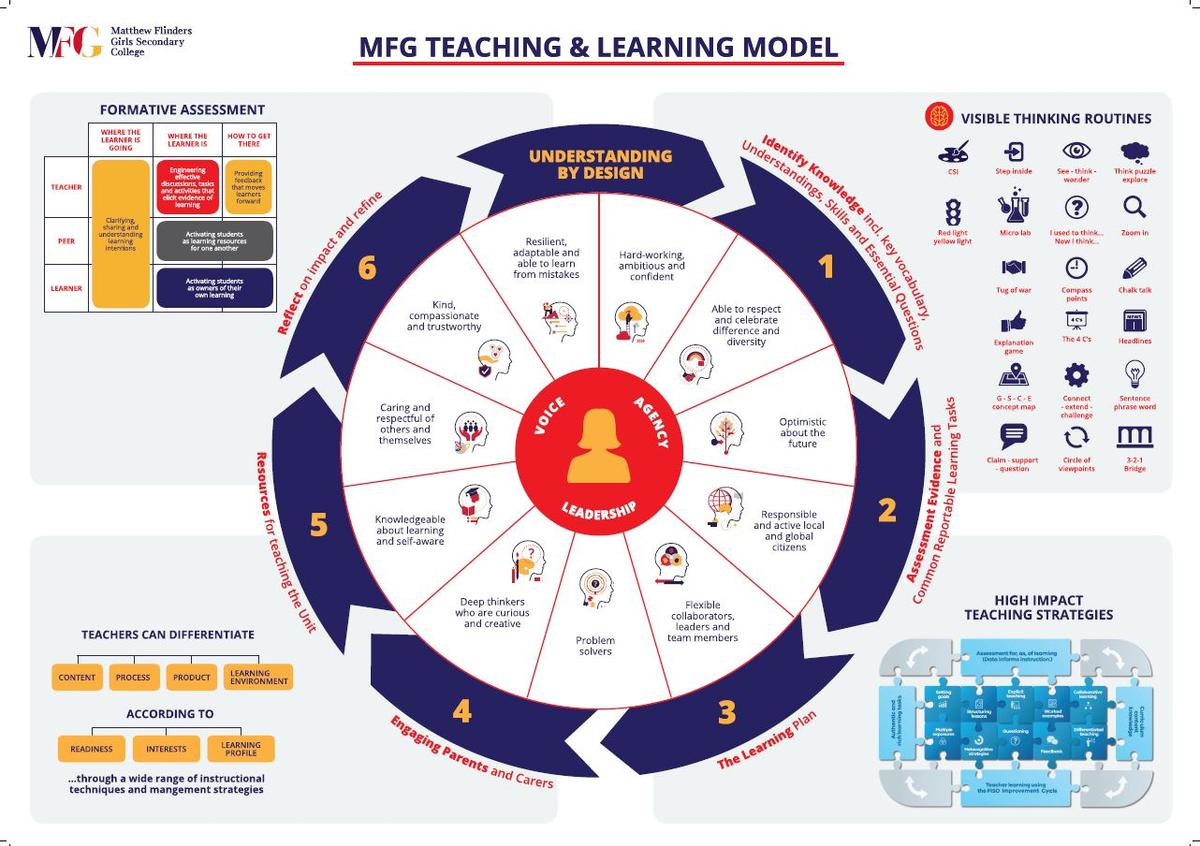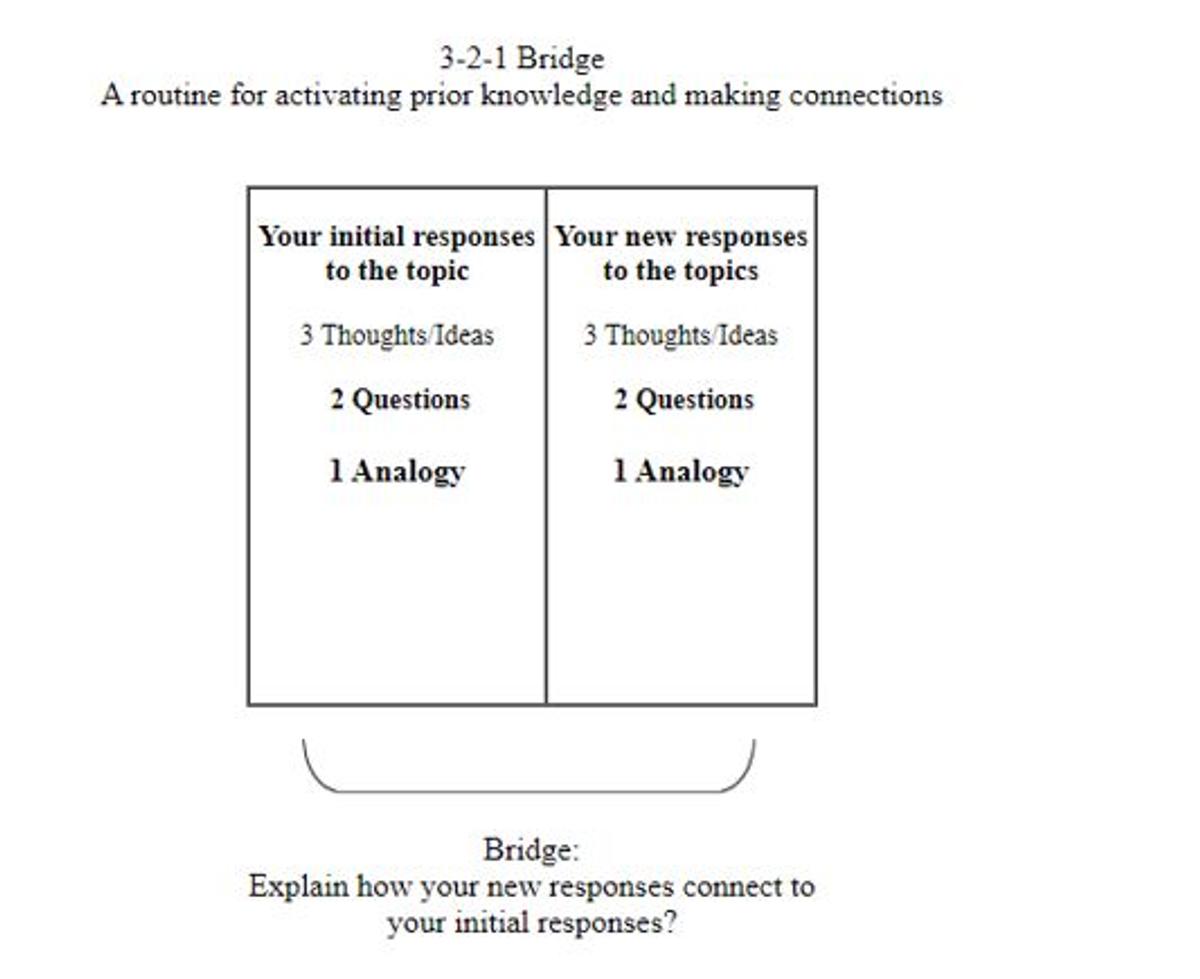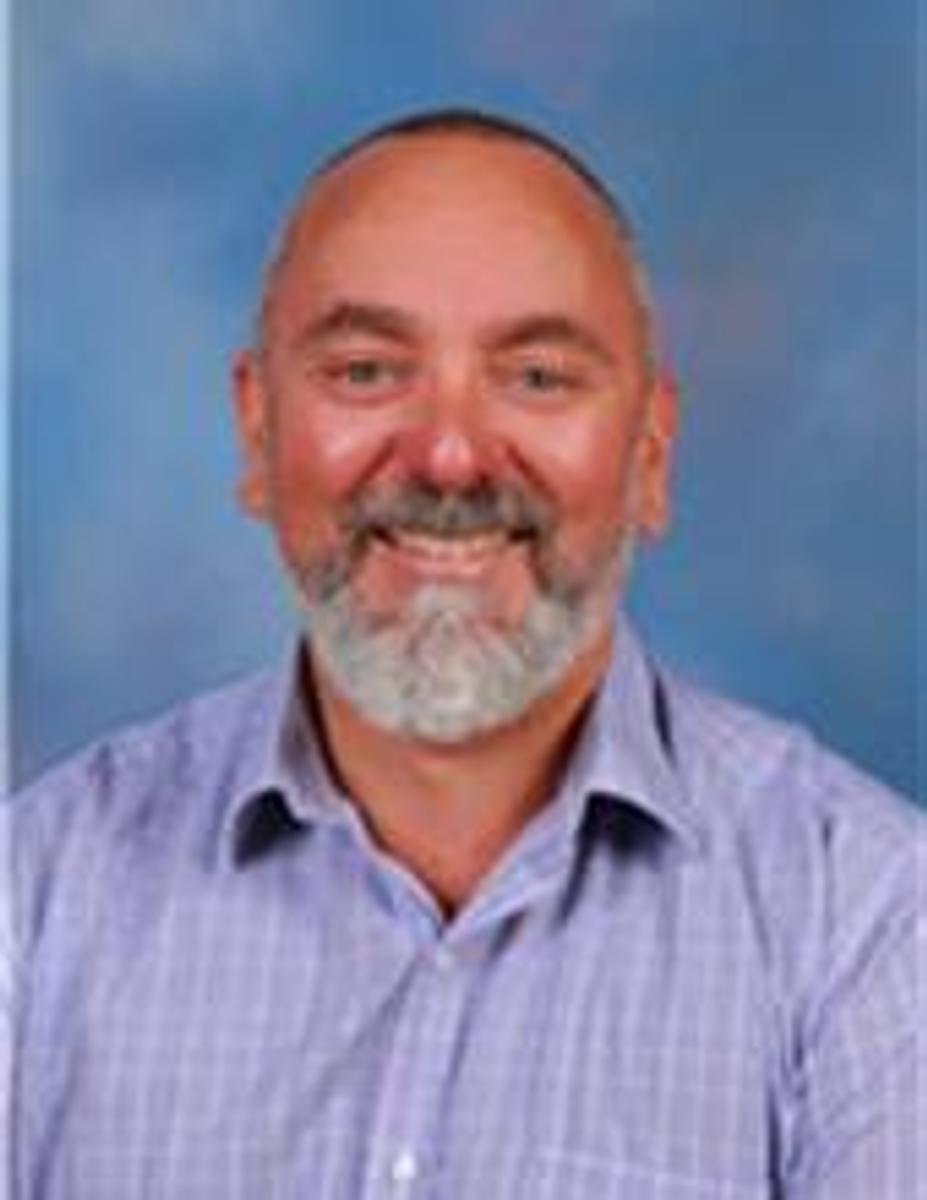Learning and Teaching
at MFG

Learning and Teaching
at MFG
Since 2014, we have been refining our focus as a school and gradually been working towards developing our Teaching and Learning Model. Below is MFG’s Teaching and Learning Model and this graphic captures the key foci of our work as teachers and educators.
At the centre is, of course, the learner and our 11 Traits. Surrounding the traits is the 6 step process that our teachers use to plan and design their curriculum and learning activities – also known as ‘Understanding by Design’. The four quadrants show the four key foci of our teaching at MFG:


Printable version:
TERM 1 STUDENT-PARENT-TEACHER LEARNING CONFERENCES
Our Term 1 Parent-Teacher-Student Learning Conferences will be held on Tuesday 3rd March between 12pm and 7pm on the Main Campus of the College. There will be no classes in the morning. However, your child is expected to attend the Conference with you. Teachers will be having a short break between 2.10-2.30pm and a dinner break between 4.30-5.10pm and you will not be able to make a booking during these times.
MAKING A BOOKING ON COMPASS
BOOKINGS OPEN: Tuesday 25th February at 9am
BOOKINGS CLOSE: Monday 2nd March at midnight
Please note that only individuals who have installed the iOS or Android “Compass School Manager” native application and who have allowed notifications will receive these Push Notifications.
You can make a booking using Compass – go to the Community icon (the two people) and select Parent-Student-Teacher Conferences. Students cannot book interviews using their accounts.


Please be mindful that each Learning Conference goes for 10 minutes only. If you would like to arrange a more in-depth discussion with a particular teacher, then please make another appointment with that teacher.
We look forward to seeing you at this event and discussing your child’s progress, learning and goals.
This year the teachers in the Humanities Department will be trialling the use of a protocol - ‘My best work’ protocol - to help shape and guide the conversations during the Student Learning Conferences. A description of this protocol is below:
My best work – a protocol for discussion at a Student Learning Conference
Teacher professional learning and development goals for 2020
This year all of our teachers have two professional learning goals which form their Performance and Development Plan:
Our teachers’ focus is best represented by this diagram that also forms one of the four key foci of our MFG Teaching and Learning Model.


Our work in this area stems from the research and work of Dylan Wiliam, an international authority on assessment and teaching. Each of our teachers received a copy of one of Wiliam’s books in 2018 and are using this to guide their own individual focus and learning.
This year this goal has been extended to include another focus of our Teaching and Learning Model – Thinking Routines. This focus extends from the research at Harvard University and the work of the Project Zero team:
There are a wide range of Thinking Routines, usually involving 3 steps and can be used across subjects and contexts. For example, the ‘3-2-1 Bridge’ thinking routine:


Goal 2: The 11 MFG traits. Each of our teachers is selecting one or more of the traits (see attached) and incorporating a focus on the trait(s) into their curriculum design and their teaching. This is an exciting new professional adventure for us.
I look forward to sharing our progress with you and the difference that this focus is making to our students’ and our teachers’ learning.
Mr Damien Toussaint
Assistant Principal (Learning and Teaching)

